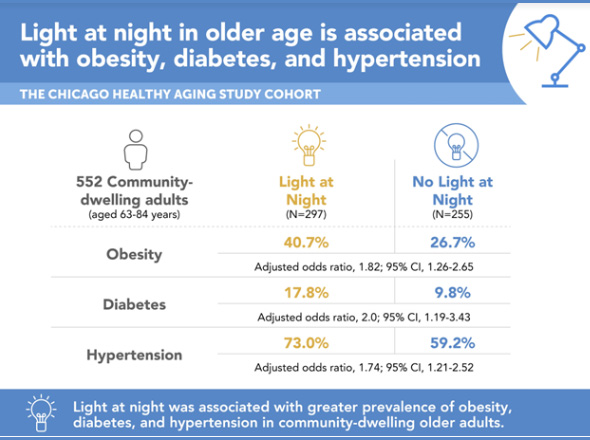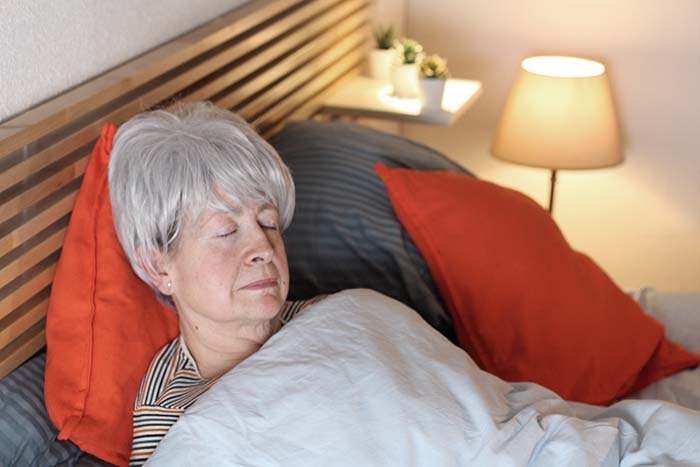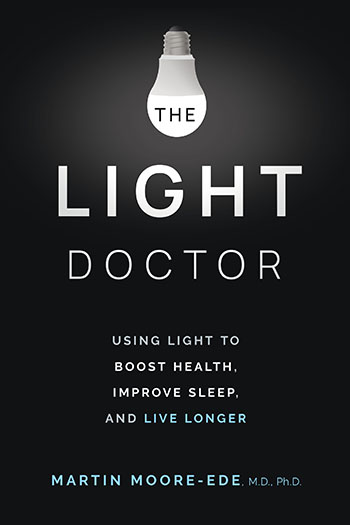Being a “Light” Sleeper is Bad for You
Sleeping with the lights on at night is surprisingly common in the elderly, and it had devastating effects on their health
The rates of obesity, diabetes and high blood pressure were almost doubled in Chicago residents aged 63-84 living in their own homes who kept the lights on at night, as compared to those who got at least 5 hours sleep in the dark.

Chart courtesy of academic.oup.com
The health of the study participants had been tracked since 1973 and were part of the Chicago Healthy Aging Study. The research team from Northwestern University used special activity wristwatches with light sensors to objectively record how much light at night the subjects were exposed to. 54% of these elderly people were found to sleep each night with the lights on.
This real-world study of people in their homes adds to the mountain of evidence that most electric lights at night disrupt circadian clocks, and contribute to obesity, diabetes and cardiovascular disease.
The study, entitled: Light at night in older age is associated with obesity, diabetes, and hypertension, was authored by Dr Minjee Kim and her colleagues and was published in the journal Sleep

